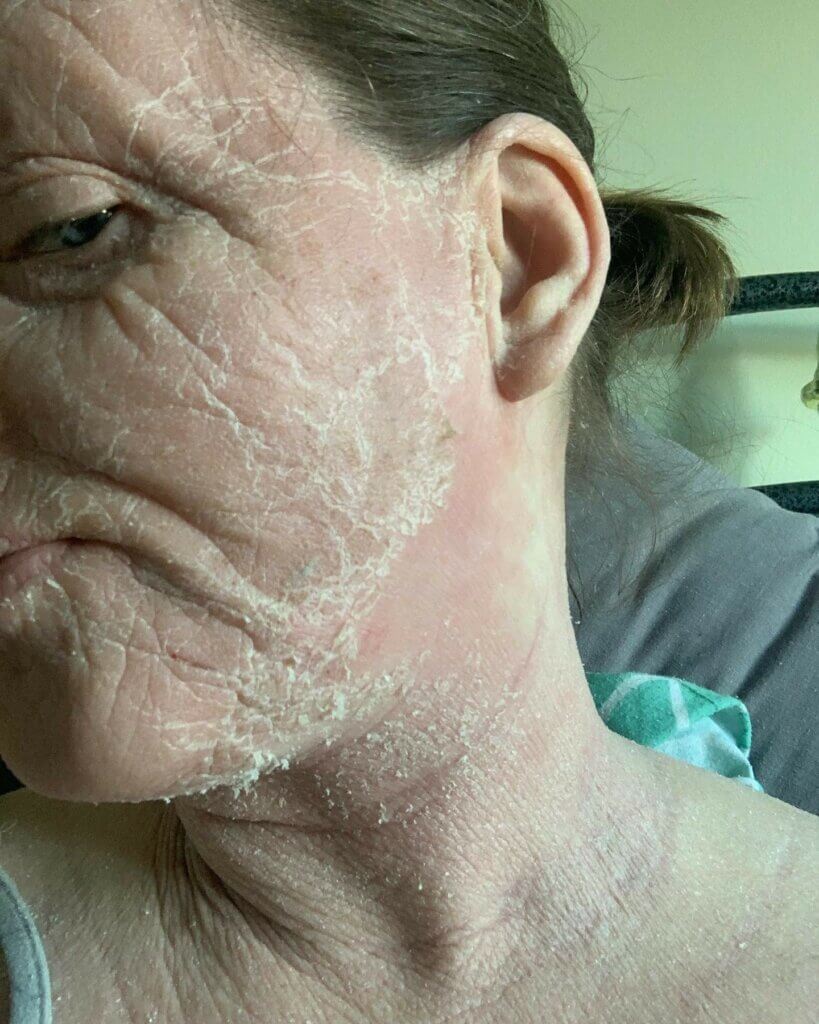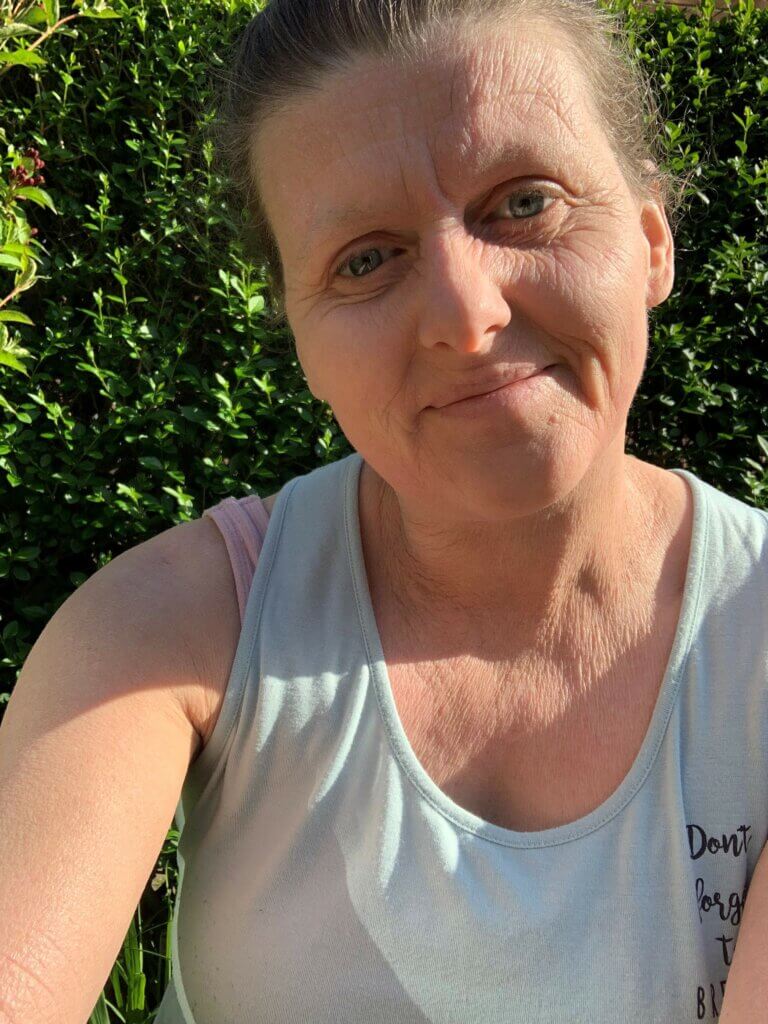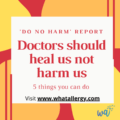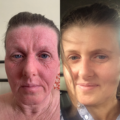Thank you to everyone who signed the Change.org petition to push for funding and research into Topical Steroid Withdrawal. We needed to get 10,000 signatures to get a response from the government and they have responded. This is just the beginning…
Here is the Government response in full:
This response was given on 12 May 2022
Adverse reactions from topical steroid withdrawal can occur following long-term or incorrect use of these medicines. The Government welcomes high-quality research to further understand this issue.
Steroids are both natural chemicals produced by the body and manufactured as medicines to treat inflammation. Topical steroids are applied directly to the skin. Corticosteroids are the most common type used to treat skin conditions. Topical corticosteroids are available in several different formats including gels, creams, and ointments.
There are growing reports of withdrawal reactions in people who have stopped using topical steroids. A particularly severe type of topical steroid withdrawal reaction has been reported with skin redness (or a spectrum of colour changes or change in normal skin tone) and a burning, which patients report as worse than the original condition.
The Medicines and Healthcare products Regulatory Agency (MHRA), the government agency responsible for regulating medicines and medical devices in the UK, is unable to estimate the frequency of withdrawal reactions to topical steroids. However, given the number of patients who use topical corticosteroids, the understanding is that these effects occur very infrequently. Although reactions may be infrequent, they can be debilitating and long lasting, and the impact this can have on an individual’s health and mental wellbeing should not be understated.
The MHRA continually reviews the safety of all medicines in the UK and informs healthcare professionals and the public of the latest updates. In September 2021, the MHRA conducted a comprehensive review of the available evidence on topical steroid withdrawal reactions. This review considered side effects reported to the MHRA by patients and healthcare professionals, and information published by researchers and medicines regulators. The review also sought advice from dermatologists and skin charities.
The review concluded that, when used appropriately, topical corticosteroid medicines are safe and effective treatments for skin disorders. It is essential that patients have access to clear advice on the risks of topical steroid withdrawal and feel fully informed on how to safely use these medicines. Safe usage includes using these medicines to only treat certain skin conditions for short periods of time, or with short breaks in treatment over an extended period. Information about these reactions will be added to the product information provided to healthcare professionals and patients. The MHRA has produced materials for patients and healthcare professionals advising on the best way to minimise the risks of adverse reactions and what to do if they occur.
The funding of robust research and scientific evidence is recognised as playing a pivotal role in shaping our understanding of health, and this includes understanding the side effects of medicines. In 2017, the National Institute for Health and Care Research (NIHR) funded a £2 million study to improve the lives of people with eczema. Part of this study will update existing evidence around the safety of topical corticosteroids and develop targeted advice on this medicine for patients and healthcare professionals. The study is due to be completed in 2023.
The NIHR welcomes funding applications for research into any aspect of human health, including topical steroid withdrawal. However, it is not usual practice to ring-fence funds for particular topics or conditions. Applications are subject to peer review and judged in open competition, with awards being made on the basis of the importance of the topic to patients and health and care services, value for money and scientific quality.
Department of Health and Social Care
At 100,000 signatures…
At 100,000 signatures, this petition will be considered for debate in Parliament…
I have a lot to say about this response…
I’ll take it bit by bit and respond to each point:
- The MHRA is unable to estimate the frequency of withdrawal reactions to topical steroids – That’s because there is no proper research and no one is monitoring, recording or diagnosing TSW patients. That’s the reason we need this research.
- The understanding is that these effects occur very infrequently – If you can’t even estimate the frequency because literally no one is accepting, diagnosing, recording or researching and monitoring TSW… how on each can you assume it’s infrequent? The problem is the the very specialists we are supposed to turn to are not listening, not making a note on our records, not diagnosing us. This is a never ending loop of doom.
- The MHRA continually reviews medicine – really? It feels like they did a review and shared it and everyone has swept that under the dusty, bloody, skin covered carpet.
- When used appropriately, topical corticosteroid medicines are safe and effective treatments for skin disorders. – Not that sh*t again. Use it for 2 weeks only it says on the advisory notice yet dermatologists continue to prescribe it for long term use.
- Essential that patients have access to clear advice on the risks of topical steroid withdrawal and feel fully informed on how to safely use these medicines – There are no warnings for Topical Steroid Withdrawal on the medicine contraindications for topical steroid creams. I am also not aware of any doctors or dermatologists who are making people with eczema aware of this risk. It’s just not happening. I hear every day of more and more people facing TSW and more and more people being prescribed topical steroids with no warnings… just advice that it’s complexly safe to use.
- The MHRA has produced materials for patients and healthcare professionals advising on the best way to minimise the risks of adverse reactions and what to do if they occur. – Really? have they? Then why is my dermatologist refusing and unable to diagnose me with the condition? Why have I been offered no advice on what to do now it’s ‘occurred’? The guidance on minimising risks is not enough, I don’t think they really understand the sheer magnitude of this and really struggle to fathom how delaying serious action is helpful to anyone. It makes me so angry.
- It mentions a £2 million study done in 2017 by the NIHR. – 2 years before I started to go through TSW myself. This study could well be largely irrelevant if it’s been formed and based on understanding back in 2017 because Topical Steroid Withdrawal was only really accepted as real last year in 2021. The results should be available in 2023… I’d love to get an understanding of how far reaching and helpful this study will be since I’ve not even heard of it myself. I’m going to find out who is in charge of this study and get to the bottom of that. Because if it’s not taking TSW into consideration and is then used as the gold standard research for moving forwards YEARS of suffering will continue for people using topical steroids and those who will start to use them without knowing the dangers.
- Apparently part of this study will update existing evidence around the safety of topical corticosteroids and develop targeted advice on this medicine for patients and healthcare professionals.- If all it does is go on to recommend immunosuppressant creams, not currently recognised as dangerous (but which I am also withdrawing from with very detrimental side effects, worse that topical steroid withdrawal) it will have failed. If it pushes patients to take immunosuppressants orally and then go on to use newer drugs like Biologics and JAK inhibitors I really fear that there is more trouble brewing when these are proven also as short term sticking plaster treatments. All they do is suppress the bodies natural response. Why can’t anyone look at what is happening and why? Instead of this sticky plaster response.
- They’re asking for funding – The NIHR welcomes funding applications for research into any aspect of human health, including topical steroid withdrawal – Well this is the first thing I agree with. But who is going to fund this research? Should the pharmaceutical giants who created this medication foot the bill? Or do they all walk away scot free? Are they all now rubbing their hands with glee because the new drugs coming in are way more expensive? Topical steroids are relatively cheap to produce though the damage they do is uncountable… dangerous! Unfathomable and so heart breaking the damage these drugs have done. The lives on hold, the lives lost, the suffering.
- It is not usual practice to ring-fence funds for particular topics or conditions – Really? All research funding surely needs a strict finely defined objective for it to be effective. All the research done is into specific conditions and patients. This just reads to me like they’re saying… go away you lot, it’s just a skin condition and there are people far more needy of help and research. Maybe I’m just being very cynical.
- Applications are subject to peer review and judged in open competition, with awards being made on the basis of the importance of the topic to patients and health and care services, value for money and scientific quality. – GREAT! To me this study and research could help so many people avoid unnecessary and untold years of hell on earth. Living through topical steroid withdrawal has felt like a prison sentence and a life on hold. This statement, whilst true, is one of those so what statements. we know this is the case, t’s obvious all research has to go through rigorous processes before going ahead. And we all know long these processes can take. This worries me though because I don’t think it’s going to be easy research to do. This condition is complex and no one is monitoring it right now.
So basically they’re not saying anything new.
WE NOW NEED 100,000 SIGNATURES
At 100,000 signatures, this petition will be considered for debate in Parliament. I thought the 10,000 signatures was for that, but now we extend the goal posts.
So now we have a new target to aim for… Can we do it? We need all your help.

Can we get to 100,000 signatures? Because unless we do NOTHING will change.
When you’ve come so far and been through so much, hitting brick walls at every turn, it’s frustrating. The way I learn and make sense of the world and the experiences I’ve had is to share, learn and help others.
This condition not only leaves me exhausted and demoralised. It leaves me heartbroken that no matter what we do and how much we talk about it, people are still going to be prescribed topical steroids. The only voice we have is the one we use on social media.
Please help us, whether you have eczema or know someone who has, or whether you know nothing about it, please sign this petition and share it and share it. Please help.
I feel lost and scared for the future. TSW has taken so much and now it leaves me with a mission I cannot put down. I can’t rest, I have to keep on fighting. I will never stop fighting to make things better for people in the future who go to their doctor with eczema because there is a better way.

Please sign the petition here:
I’d love to know your thoughts… will we ever get there? Have you signed the petition yet? Why are they so reluctant to take this seriously?












Leave a Reply